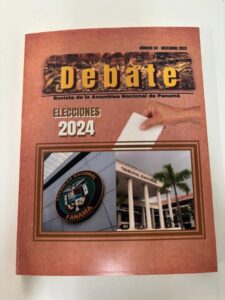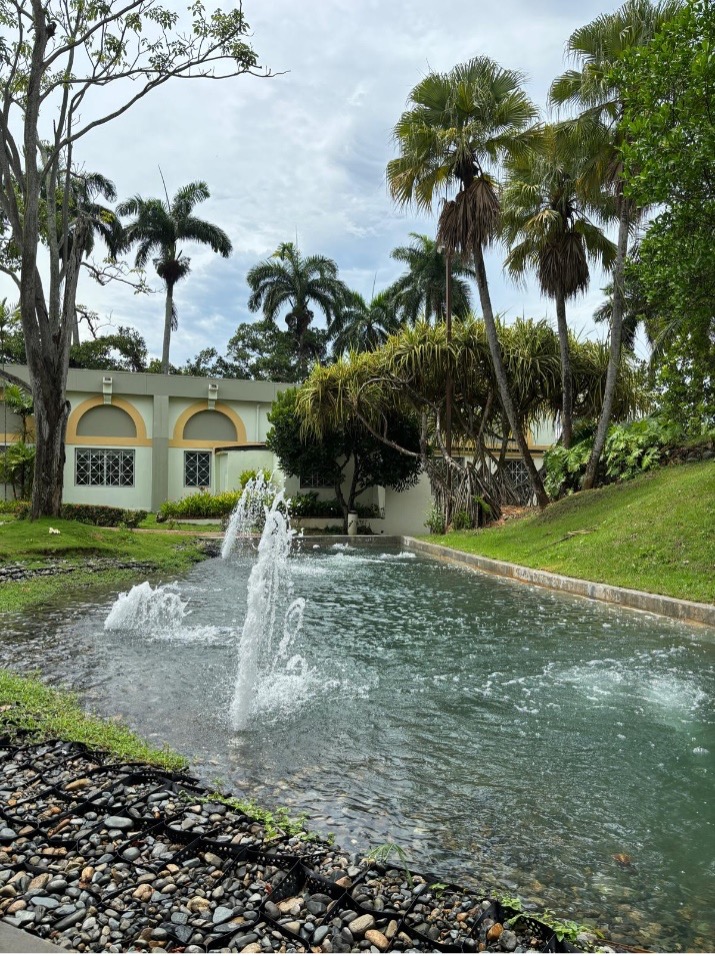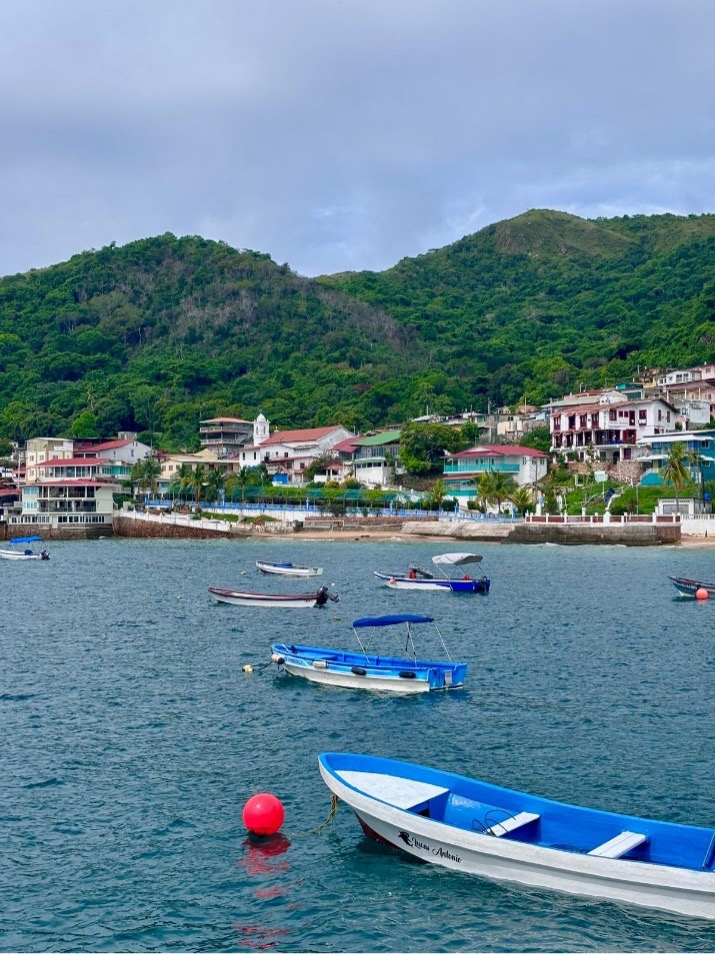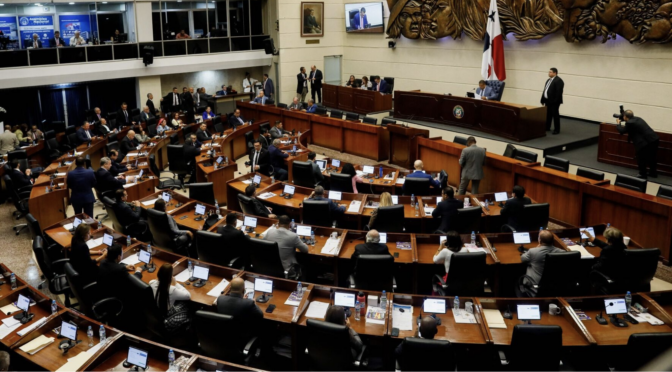By Alejandra Vadillo, Undergraduate student in the UT Mexican American Studies Department and Communications Department
This summer, I had the privilege to carry out my fellowship with International IDEA in Panama City, Panama. Working closely with the Institute of Democratic Studies (INED) at the Electoral Tribunal of Panama, I collaborated with some of the sharpest minds in the field to tackle complex issues facing Panama’s democracy, as well as others around the world.

One of my primary mentors with INED was Ramón Benjamín. He is a multidisciplinary mastermind, focusing his research on a variety of topics including democracy, citizenship, human rights, intolerance, civic education, electoral actors, electoral behavior, political parties, and Panamanian political elites. I created a database with references to speed up the initial research process for his upcoming project on hate discourse in electoral environments. I split up research into a few areas: fascist and colonial discourse, case studies in political discourse, jurisprudence, political and electoral propaganda, social media, and theoretical analysis. Considering my semester-long research project this spring on misinformation and disinformation in the electoral process, I had a unique perspective on how hate discourse can be carried out in political arenas.
My additional mentor was Yanis Batista Franco. Her focus at INED is the Electoral Tribunal’s Youth Citizenship website, where she creates online resources to foster civic engagement and education for adolescents who have recently reached the voting age of 18. I had the pleasure of working with her and Rosiquel Lara de Jaen on various projects to expand the resources available on the website. The first project I worked on with them was creating scripts for educational modules covering the importance of community involvement. We carefully outlined the history of youth community involvement, the importance of volunteer work as a form of community involvement, the personal and community benefits of youth volunteer work, and how to get involved in community-centered volunteer opportunities. We also created scripts for educational modules covering youth involvement in the protection of human rights. In these scripts we focused on the history of human rights in Panama, types of human rights, and important figures in the fight for human rights. I loved working on these projects, and I wish there were more readily available resources like these for youth in America.
I then worked with them on a proposal to create volunteer opportunities at the Electoral Tribunal and INED. Considering volunteer work is a requirement for a bachelor’s degree at most colleges and universities in Panama, creating these opportunities at the Electoral Tribunal and INED is a great opportunity to expose future Panamanian professionals to all of the possible career paths that are offered in this environment! This project will give young college students the opportunity to learn new skills, develop a sense of community, experience a new work environment, and fulfill their volunteer requirements for graduation. We separated these volunteer positions into three different opportunities within the Electoral Tribunal: an internship at INED, volunteer work at the Democratic Culture Museum, and volunteer work at the Democratic Garden. My internship at INED was extremely fulfilling, and I am certain that expanding these opportunities to Panamanian youth will bring fresh ideas and perspectives to the table.

Finally, I had the pleasure of assisting Julio César Pérez Martinez and Miriam Zelaya Pinilla on a project to create a database including every legislative bill that has been introduced in the National Assembly of Panama (Asamblea Nacional de Panama). This is a massive project, but for the sake of my time in Panama, we focused on the most recent presidential term from 2019-2024. The goal is to be able to create graphs and other types of visualizations to better understand the breakdown of who is proposing bills, which committees they are assigned to, and how many successfully become laws. We also tracked details like when these bills are introduced, how many debates they go through, and why they are rejected if they do not become laws. Although I was not working with Julio César and Miriam directly on their research articles, I had the opportunity to read some of their publications such as Debate: Revista de la Asamblea Nacional de Panama: Elecciones 2024. Reading their personal insights on the state of Panamanian democracy was one of my favorite takeaways from this experience.
Aside from our assigned projects, INED organized various “field trips” to help us get to know Panama’s history as a country and democracy. Some of the places we visited included the Center for Political and Democratic Research at the University of Panama, the Ricardo J. Alfaro Library and Museum, the Smithsonian Tropical Research Institute, the Roberto F. Chiari Library at the Panama Canal, and the Center for Historical, Anthropological, and Cultural Research. Going to the Smithsonian Tropical Research Institute was one of my favorite trips because it is the only Smithsonian Research Institute outside of the United States. We got to see some of the country’s biodiversity under some of the best microscopes in the world, tour the library and offices, and even meet some of the scientists! We also got to watch someone get interviewed for a documentary and received some textbooks to take home as souvenirs.


Outside of work, I loved exploring everything the city and country have to offer. Everyone at INED was extremely welcoming and interested in building relationships with our intern cohort. Some even took us under their wing and showed us their favorite parts of Panama! Fellow interns Andrea, Bourne, and I also took a quick day trip to Colón, where we got to see a ship pass through the Panama Canal, visit neighborhoods where scenes from the movie Suicide Squad 2 were filmed, and visit the famous Spanish fortress el Castillo de San Lorenzo. We also became well acquainted with Casco Viejo, one of the most historic and popular neighborhoods in Panama City. We watched a show at the National Theater, tried popular restaurants, and took in the beautiful architecture.


Panama City is also known for being in close proximity to many tourist-friendly islands. One day, we took a guided tour to Monkey Island where we got to get up close and personal to various native monkey species. I fed one some fresh fruit out of my hand! As a cohort, we visited Taboga Island, where we soaked in the sun and visited the Church of San Pedro which is the second oldest church in Latin America!
Overall, I was blown away by everything Panama has to offer! The country is a gold mine for anyone interested in global history, biodiversity, and democracy. I am grateful to have had the opportunity to aid in the construction of stronger democracies through my internship with International IDEA. The people I worked with at INED are some of the smartest people I have ever met, and I am excited to carry their knowledge with me throughout the rest of my academic and professional careers.
